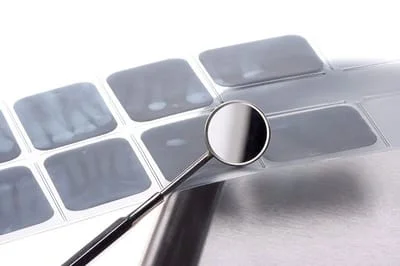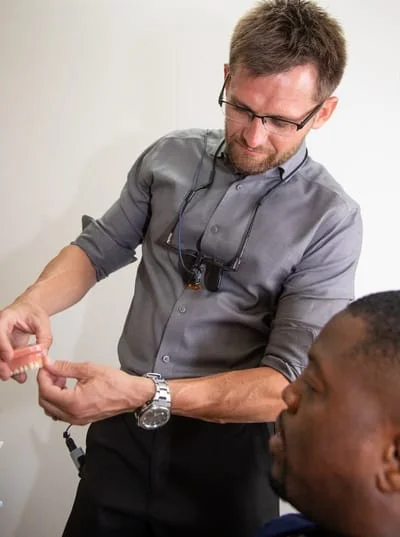Unfortunately, some patients do not act quickly enough to have cavities treated and they end up losing their teeth. In these cases, more involved approaches are needed to replace the missing teeth.
If you keep up with your routine dental care, you’ll significantly reduce your risk of oral diseases. Nonetheless, you can still develop cavities even if you stick to a six-month schedule of checkups and practice good oral hygiene habits at home.
Don’t delay in getting treatment for any cavities that may develop in your smile. Contact our team at Smile Naples to schedule an appointment to learn about your treatment options and get started on having your teeth restored.
Stages Of Tooth Decay
Tooth decay is progressive, which means that its effects are less severe when the cavities are identified in their earliest stages. Small cavities can be repaired in a single session with Dr. Dennis, while treatment for larger cavities may take a few weeks.
When tooth decay isn’t addressed, it will continue to advance and has the potential to damage the tooth beyond repair. When that happens, the tooth must be extracted and replaced.
Ideally, patients will seek treatment in the earliest stages of tooth decay, when the tooth can be salvaged. If Dr. Dennis identifies a cavity at your regular checkup, it’s important to make plans to have it addressed.
Restoring Damaged Teeth
When decay is relatively small in scale, it is possible to save the tooth by removing the decayed material and placing a restoration. The type of restoration used will depend on the extent of the decay. There are two options for restoring a damaged tooth:
Composite Fillings
These tooth-colored restorations are placed after Dr. Dennis has removed the decayed material. Composite fillings bond well with the enamel, so a smaller quantity of tooth material must be removed to make room for a composite filling.
Zirconia Crowns
For larger cavities, a dental crown may be needed for the restoration. Crowns made of zirconia are strong and durable and offer considerable benefits to patients.
Every effort will be made to preserve your tooth whenever possible. Preserving biological teeth is the best-case scenario. Unfortunately, though, this outcome is not always feasible. When an affected tooth must be extracted, patients will need to explore options for replacing their missing teeth.
Tooth Replacement Options
When your tooth can’t be saved, you have a few different options to replace it.
Zirconia Dental Bridges
These appliances consist of a pontic (crown) that is held in place by dental crowns placed on adjoining teeth. They can be used to replace a single missing tooth or multiple missing teeth.
Removable Dentures (Partial and Full)
Partial and full dentures are intended to replace a number of missing teeth up to an entire arch. They can be removed for cleaning and during sleep, as needed by the patient. Removable dentures are custom-designed for a comfortable fit and attractive appearance.
Dental Implants
Small cylinders made of titanium – a material that bone tissue can bond with – which are surgically inserted into the patient’s jaw to replace the roots of missing teeth. Dental implants can support a single crown, dental bridge or full denture, depending on the patient’s needs.
What Are My Sedation Options?
Most patients in need of oral surgery will opt for some form of sedation for optimal comfort. Smiles Naples offers oral sedation.
Oral Sedation
The patient takes an anti-anxiety medication by mouth before coming to the appointment. The patient will not be able to drive to or from the appointment, so a responsible adult is needed to accompany them.
Because we offer conscious sedation, the patient remains awake, although deeply relaxed, throughout the appointment. The airway continues to function normally and the patient can respond to commands from the doctor.
Dr. Dennis will discuss the sedation options with you and answer any questions that you may have.
Consequences Of Tooth Loss
Patients may be tempted to postpone replacing a missing tooth, especially when it’s not in a highly visible area of the smile. However, doing so can have serious consequences for your smile.
When you don’t replace an absent tooth, the surrounding teeth are likely to shift out of their correct positions to fill in the empty space. Not only does this negatively affect the alignment of your smile, but it can also lead to teeth being damaged if they come into contact with each other.
Of course, the health of your teeth influences the health of the rest of your body, and tooth loss has effects beyond your mouth. Failing to replace missing teeth can also compromise your nutrition, which is likely to have a cascade of effects throughout your body.
FAQs:
What is restorative dentistry?
Restorative dentistry is the specialty of dental practice that focuses on repairing the damage done to teeth by tooth decay or trauma.
What are my restorative dental treatment options?
Restorative treatments include composite fillings, porcelain ceramic crowns, zirconia dental bridges, and removable partial or full dentures. The type of restoration or appliance needed will be determined based on the extent of the effects of tooth decay.
What is the cost of restorative dental treatment?
The cost of restorative dental treatment will depend on the size of the cavity that needs to be addressed and whether the tooth can be saved. Costs of restorative dental treatment are likely to include related services, such as imaging or extraction when needed.




